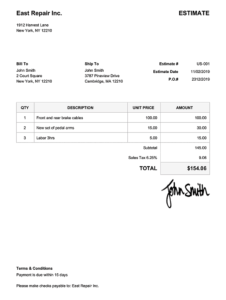Who do you call? Where do you start? Your choice of contractor is an important one, and you have a lot of companies to choose from. How do you narrow down the choices and finally make a selection? There are no magic answers, but over the years I’ve come up with some guidelines to share with my clients.
Who can I call?
You’ll probably start by searching the internet, but you may find the web isn’t as useful for finding a contractor as it is for finding a restaurant. There are a number of reasons for this. Location will be less important in choosing a contractor, since most are willing to travel up to about an hour for a project they want to do. You can find listings and reviews for contractors on sites like Home Advisor and Houzz, but this isn’t too much better than an old fashioned phone book. Reviews are nice, but until you know which contractors have the right kind of experience for your project they aren’t that helpful. A search will typically list companies that do only small projects like bathroom renovations right next to ones who do large additions and whole house renovations. The nature of the business also means that some of the best craftsmen are very small operations, without staff dedicated to optimizing search engine rankings, or even a website. Contractors who are good enough to get lots of referrals they may not need to have a strong web presence.
So recommendations are a good selection tool. See who your friends and neighbors have used in the past, and ask your architect for suggestions. Professional association membership lists can be helpful too. Contractors who belong to the local Home Builders Association (HBA) or the National Association of the Remodeling Industry (NARI) are more likely to be stable companies with experience. These organizations offer certification programs that provide additional evidence of professional expertise. You can find lists of membership for the Summit and Portage County Home Builders Association at Akron HBA & Remodel With Confidence, and for NARI at www.nari.org/consumers/.
Next you’ll want to find out what you can about the contractors you have recommendations for. Websites may be helpful here, but go ahead and pick up the phone for the companies who don’t have good websites. You’ll want to know how long the company has been in business, whether they have done other projects similar to yours, whether they have a commitment to sustainability similar to your own, and what their Better Business Bureau rating is. You can check a company’s BBB history at Akron BBB.
Check their References! Talking to past clients is an excellent and important way to find out what it will be like working with a company. This is worth doing even if the references are provided by the contractor. If the best references they can provide are lukewarm in their enthusiasm, they may not have any big fans. And it will help you to learn about their strengths and weaknesses, and whether they are likely to be as good a fit for you as they were for them. Was the project similar in scope to what you are planning? Were they happy with the quality of the work? Was the project finished on time and within budget? Did the process go smoothly? If you can speak directly with the references you will learn more than you could from an email exchange.
Now I have an appointment, what should I ask?
Meeting with a contractor in person is an important part of the  selection process, and you will want to meet with at least three. Talking with several people will help you build confidence in your choice, which will help the construction process go more smoothly. For smaller projects, you may be able to select a contractor based on just one meeting with them. For a more major renovation or new home, a first meeting is primarily about getting to know who the contractor is, what kind of work they have experience in, how they run their projects, and whether they would be interested in working on your project. Knowing when you hope to start construction is important here, because other project commitments could affect whether they can include your project in their schedule.
selection process, and you will want to meet with at least three. Talking with several people will help you build confidence in your choice, which will help the construction process go more smoothly. For smaller projects, you may be able to select a contractor based on just one meeting with them. For a more major renovation or new home, a first meeting is primarily about getting to know who the contractor is, what kind of work they have experience in, how they run their projects, and whether they would be interested in working on your project. Knowing when you hope to start construction is important here, because other project commitments could affect whether they can include your project in their schedule.
Having design drawings for this meeting can be an advantage too. You can learn a lot from talking through a project with a contractor- both about them and about some of the issues you may face during construction. If you rely on verbal, or even written, descriptions of what you hope to do it will be more difficult to know if different contractors understand the project in the same way. Even rough schematic design drawings can help to improve communication.
Bids versus Estimates, and should I get three bids?
Sometimes these terms are used interchangeably, but Webster’s sees them as different. A bid is a commitment on the part o
a contractor to complete a project for a specific amount of payment, provided the scope of work doesn’t change and unexpected conditions aren’t discovered during construction. An estimate is a rough idea of what a project will cost, without a specific commitment to complete work for that price. Before you start work, you will likely want to have a firm number for the cost of the work. But should you get several bids and compare them before selecting a contractor?
Just after I finished college I worked at a firm that did municipal work that required three bids. The Construction Documents for those projects were very descriptive of what was expected. Besides extensive drawings with lots of details, they included 2” thick written specifications describing most every item that would need to be purchased, installed, or applied for the project. Often public entities were required to take the lowest bid. This process did not always result in a smooth construction experience, or even necessarily provide the lowest end cost. Low bidders would often be more likely to find reasons for change orders to add to the cost of their original bid.
For smaller projects where the scope of work is easy to define, it may make sense to get competitive bids. But for larger residential work, it’s difficult to get an “apples to apples” price even if you have extensive detailed specifications. The experience a contractor brings to a project, their level of craftsmanship, how quickly they can complete construction, and their willingness to stand behind their work after they are done all affect the value. These things are all very difficult to specify when you ask for bids.
That said, being comfortable with your contractor is very important, so if getting multiple bids makes you the most comfortable, then you should go ahead and get them. You and the contractor will be happiest in the long run when you start the process with confidence in the company you have chosen to work with. Just don’t assume that you will want to choose the lowest bidder. Three bids are often suggested as a good number because they give you an idea of what an “average” price is. If all the bids are similar, that’s a good sign. If one is really high or really low compared to the other two, you may not want to choose that company. And remember to pay attention to their qualifications too.
Getting more than three bids can be counterproductive. For a large project a detailed bid takes a LOT of work on the contractor’s part. If they don’t think they have a reasonable chance of getting the work, they are apt to bid high enough to cover their bases without sharpening their pencil. Worse yet, if a contractor really needs the work they may bid low enough so they feel sure of getting the project, but then may not be able to finish!
The Team Approach

You may want to start a partnership with your contractor even before you start design. Many sustainable certification systems, such as LEED, require that the owner, architect, and contra
ctor are all involved from the very beginning. In order to get a Net Zero, PassiveHaus, or other super-high performance home, it is essential to have a contractor who has the training and commitment to meet rigorous air sealing and other sustainability goals. For these projects, you will want to choose a contractor as soon as possible to meet your budget, sustainability, and architectural goals. But no matter the size or scope of your project, you want a contractor who will be your partner in the construction process.
